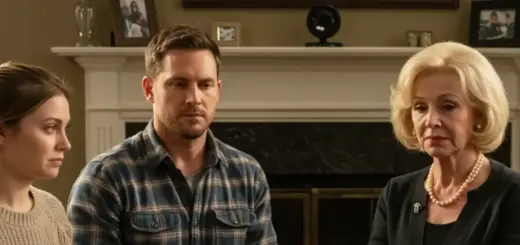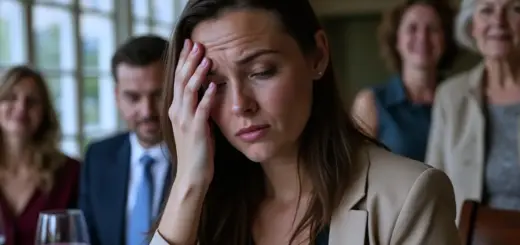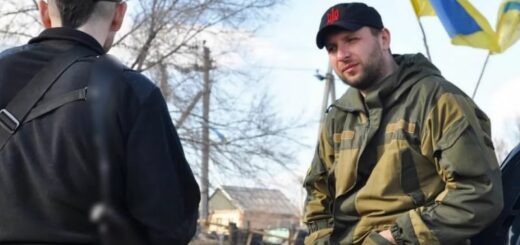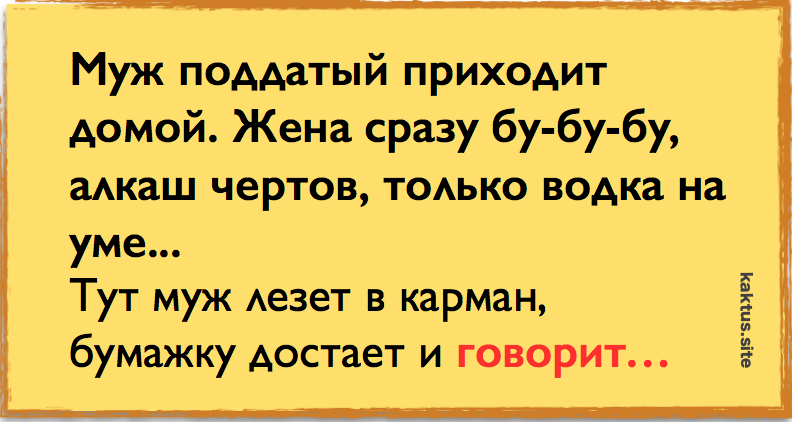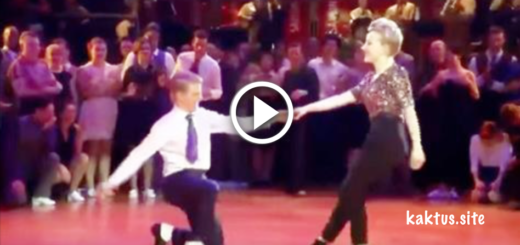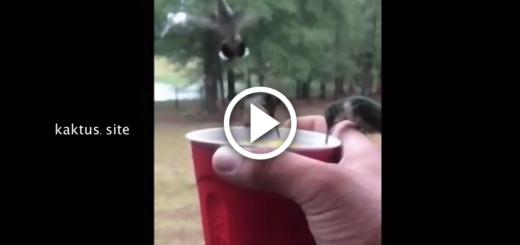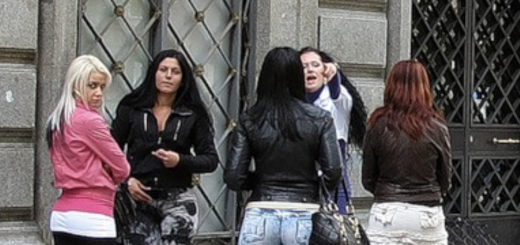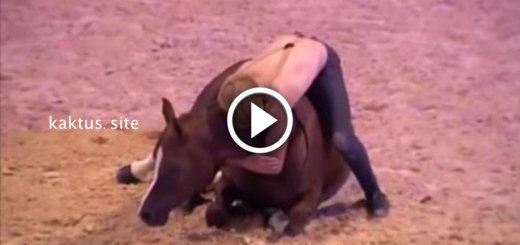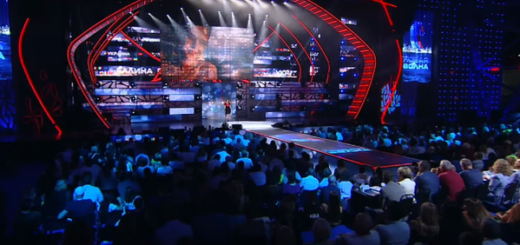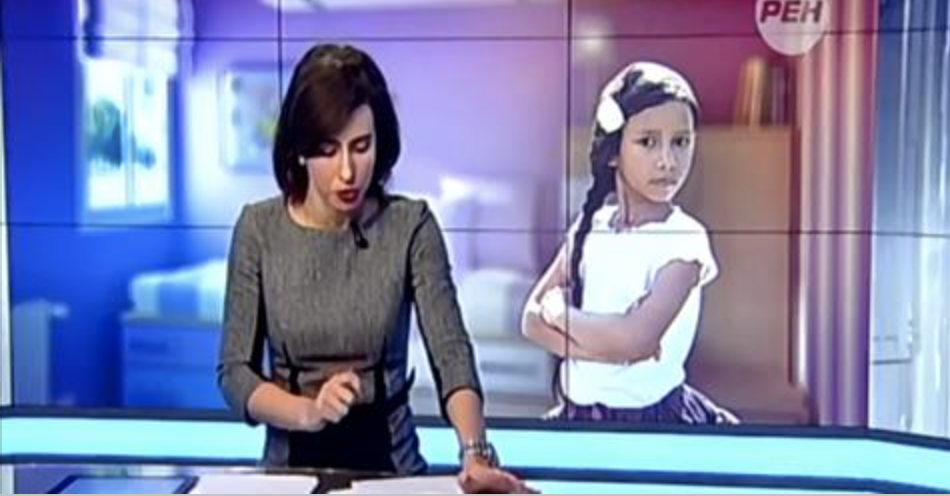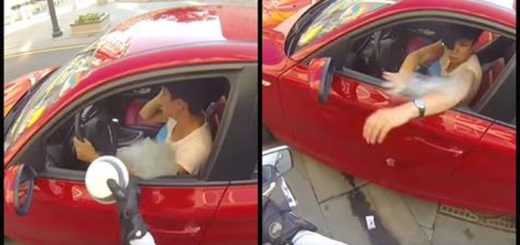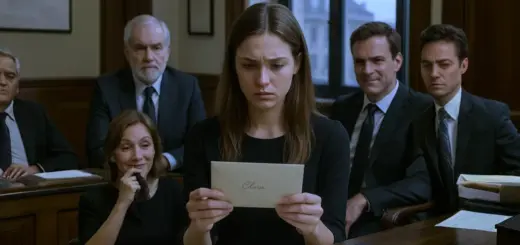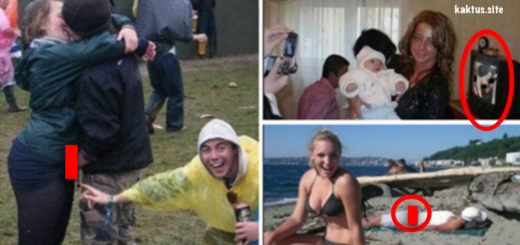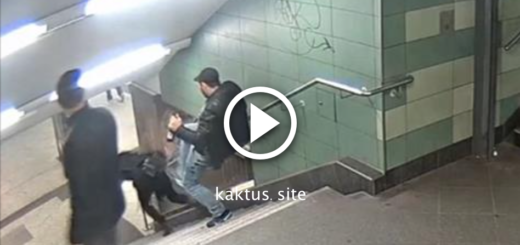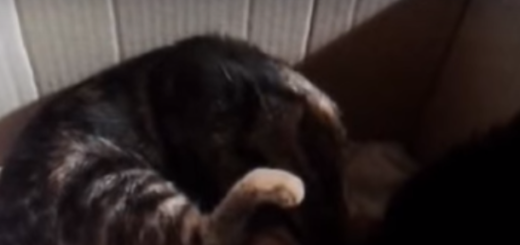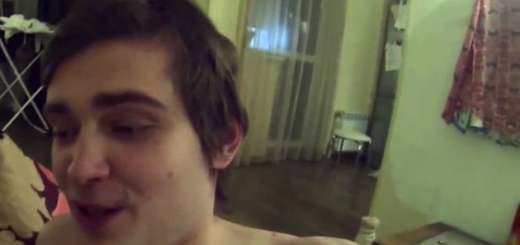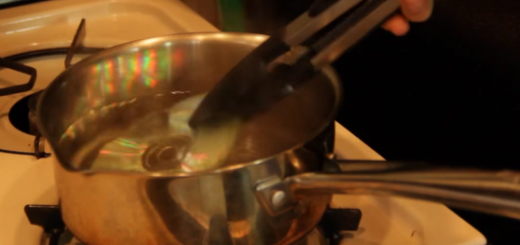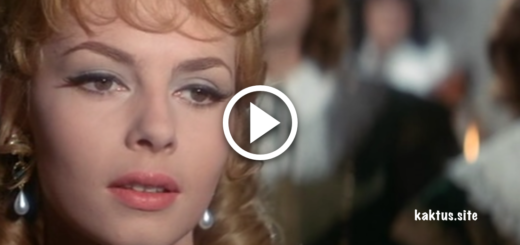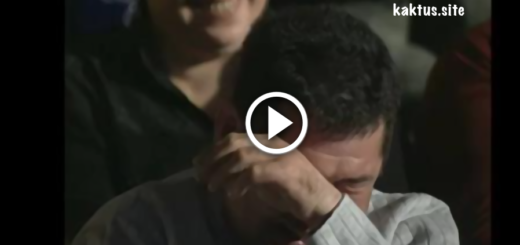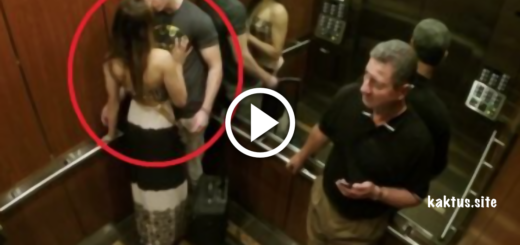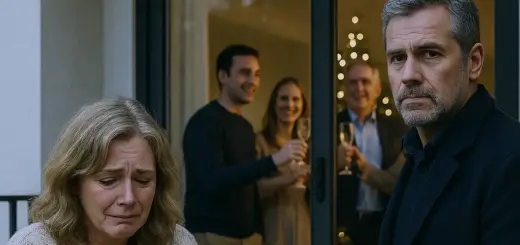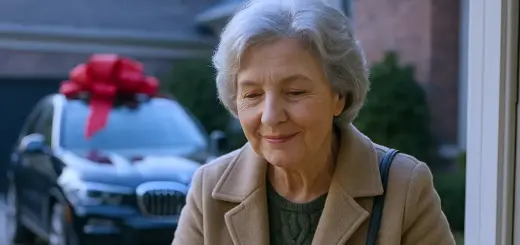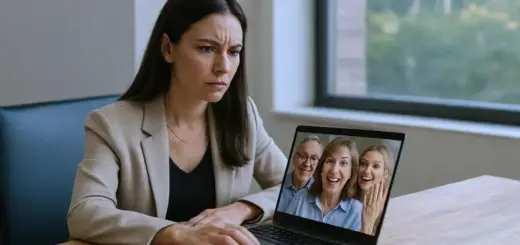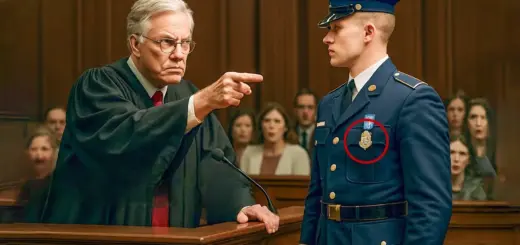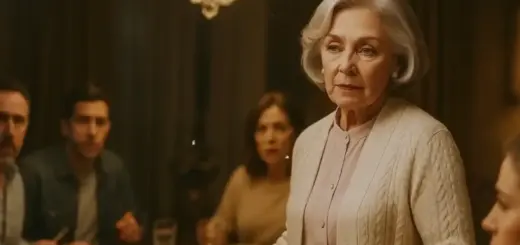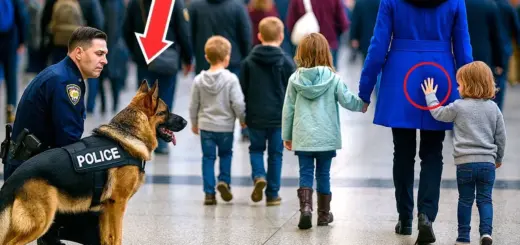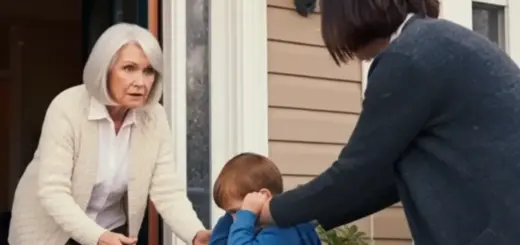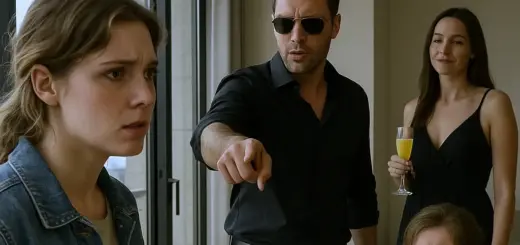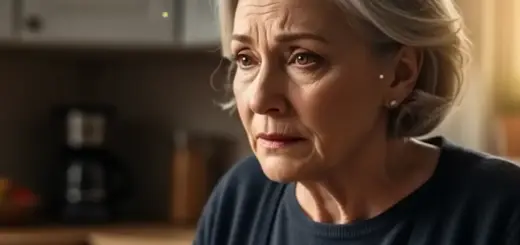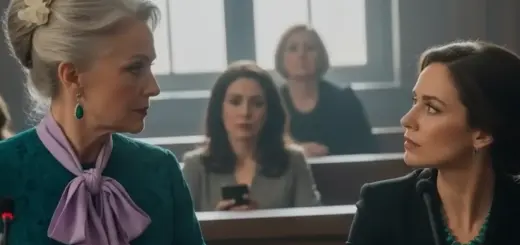3.2 million dollars. That’s what this was about.
«Can we fight it?» I asked.
«Yes. But I need you to understand. Her case looks strong. She has documentation. A compelling narrative about maintaining involvement from a distance. Unless we can prove those documents are fraudulent, we’ll lose.»
Linda didn’t disagree. I looked at Ethan. He sat perfectly still, hands folded on the table, face blank. He wouldn’t meet my eyes.
«Ethan,» I said quietly. «Do you understand what’s happening?»
«Yes.»
«Are you scared?»
He thought about that. «No.»
How could he not be scared? I was terrified.
Linda explained the next steps. Depositions. Discovery. Court dates. It would take weeks, maybe months. The whole time, Rachel’s claim would hang over us.
After she left, I sat at the kitchen table and broke down. «We’re going to lose you,» I said through tears. «After everything. After 11 years. We’re going to lose.»
Ethan stood up. Didn’t say anything. Just walked to his room and closed the door.
I wanted him to tell me it would be okay. To show some emotion, some fear, something. But he just left me there. I cried alone at the table for an hour.
The depositions started two weeks later. Rachel went first. She sat in the conference room at her lawyer’s office, perfectly composed, hairstyled, makeup subtle, wearing a soft gray sweater that made her look maternal.
Walsh asked her questions. She answered smoothly. «Can you describe your involvement in Ethan’s life over the past 11 years?»
«I’ve tried to maintain consistent contact,» she said. Her voice was steady, warm, apologetic. «I visited monthly when possible. Sent financial support through money orders. Called regularly to check on his progress.»
«Why didn’t you take physical custody?»
«I felt it was better for Ethan to have stability with my mother while I dealt with personal challenges. But I never stopped being his mother. I never stopped caring.»
She provided dates. Specific months when she claimed to have visited. Exact dollar amounts she supposedly sent. December 2012, $300. April 2014, $500. On and on, a detailed financial record of support that never happened.
I sat there listening, nails digging into my palms.
«Mrs. Cooper? Why are you seeking custody arrangements now?» Walsh asked.
«Because Ethan has significant assets that need proper management, and because he’s approaching adulthood. I want to be present for this crucial transition, to guide him, to make up for lost time.»
She looked at me when she said it. Sad eyes, regretful smile. I wanted to scream. Wanted to call her a liar in front of everyone. But Linda had warned me. Stay calm. Don’t react. Let her tell her story.
After Rachel finished, Linda took me aside. «Her testimony is detailed. Consistent. That’s very convincing to judges.»
«It’s all lies.»
«I know. But can you prove it?»
I couldn’t.
Ethan’s deposition was three days later. Walsh asked him questions about his childhood, about memories of his mother. About her involvement.
«Do you remember your mother visiting you?» Walsh asked.
«I don’t recall specific visits.»
«Do you remember phone calls from her?»
«I’d have to check my records.»
«What about financial support? Did you know she was sending money?»
«I don’t remember receiving money from her.»
Walsh looked pleased. He thought Ethan’s memory was poor. That it supported Rachel’s narrative that she’d been involved. But Ethan, being autistic, simply didn’t remember clearly. He had no idea.
Linda asked Ethan questions too. «Can you describe your relationship with your grandmother?»
«She takes care of me. Cooks meals. Helps with school. She’s always been there.»
«Do you want to live with her?»
«Yes.»
«Do you want your mother to have control of your finances?»
«No.»
Short answers. Direct. True. But they felt weak against Rachel’s detailed lies.
After the deposition, Linda drove us home. «He did well,» she said. «But Mrs. Cooper, I have to be honest. Without evidence proving Rachel’s documents are forged, this is going to be difficult.»
«How difficult?»
«We might lose.»
That night I couldn’t sleep at all. I lay in bed staring at the ceiling, thinking about Ethan being taken away. Rachel controlling his money. Him turning 18 and being free. But those two years feeling like forever.
At 3 in the morning, I got up. Saw light under Ethan’s door. I opened it quietly.
He was at his computer. Three monitors glowing. Lines of code scrolled across one screen. Documents and data filled the others.
«Ethan. It’s 3 in the morning.»
He didn’t turn around. «I know.»
«You need to sleep. Court is tomorrow.»
«I’m almost done.»
«Done with what?»
He kept typing. «My records.»
I moved closer. Saw spreadsheets with dates. Files with names I recognized. My bank statements. Calendar entries. Phone records.
«Ethan. I don’t know what to do,» I said. My voice broke. «I don’t know how to fight this.»
He stopped typing. Didn’t turn around. «Just tell the truth tomorrow,» he said quietly. «That’s all you have to do.»
«The truth isn’t enough. She has documents. She has proof. Fake proof, but proof.»
«Tell the truth,» he repeated.
I wanted to shake him. To make him understand how serious this was. But he just sat there, calm, focused, like losing me didn’t matter.
I went back to bed. Didn’t sleep. Just lay there in the dark. Terrified.
Ethan stayed at his computer all night. I heard the keyboard clicking until dawn. I had no idea what he was doing. I just knew I was about to lose him. And there was nothing I could do to stop it.
Morning came whether I wanted it to or not. I got up at 6, made breakfast neither of us would eat. Ethan came out of his room at 7, showered, dressed in the button-down shirt we’d bought for court. He looked older than 16. Tired. But calm.
«You ready?» I asked.
«Yes.»
We drove to the courthouse in silence. My hands shook on the steering wheel. Ethan stared out the window.
Linda met us on the steps. «Remember, stay calm. Let me do the talking. Ethan, answer questions directly, but don’t volunteer information.»
Ethan nodded.
The courtroom was smaller than I expected. Wood paneling, fluorescent lights, that smell of old paper and floor polish. Judge Harrison sat at the bench. A woman in her 50s with sharp eyes and gray hair pulled back.
Rachel sat at the front table with Walsh. She dressed carefully. Soft colors, minimal jewelry, hair loose. She looked like a concerned mother.
We sat at our table. Linda on one side of me. Ethan on the other.
«All rise,» the bailiff said.
The hearing began. Walsh stood, presented his case smoothly. Rachel Cooper, devoted mother, maintained consistent involvement, despite personal challenges. Documentary evidence of parental rights never terminated. Financial support provided. Regular contact maintained.
He laid out the documents on the evidence table. The custody papers. The co-parenting agreements. The financial records. All fake. All convincing.
Judge Harrison reviewed them carefully. Took her time. Then she looked at Rachel. «Mrs. Cooper. Can you describe your involvement in Ethan’s life over the past 11 years?»
Rachel’s voice was steady, warm. «I tried to stay connected as much as possible, Your Honor. I visited when I could. I sent money to help with his care. I called regularly to check on his progress.»
«Why didn’t you maintain physical custody?»
«I felt it was better for Ethan to have stability with my mother while I addressed personal issues, but I never abandoned him. I never stopped being his mother.»
She said it with such conviction, such sincerity. I wanted to scream.
The judge asked more questions. Rachel answered all of them. December 2013, she visited for Ethan’s birthday. April 2015, she sent $500 for therapy costs. May 2017, she called to discuss his progress in school.
Lies. All lies. But detailed, consistent lies.
Judge Harrison looked thoughtful. «Thank you, Mrs. Cooper.»
Then it was Linda’s turn. She presented my binders. Years of school meetings, therapy records, medical appointments, every piece of evidence that I’d raised Ethan alone.
But as she went through them, I could see the judge’s expression. Sympathy, but doubt.
«Ms. Reyes,» Judge Harrison said. «These records show Mrs. Cooper has been the primary caregiver, but I don’t see formal guardianship documentation. No court order transferring custody. No legal termination of parental rights.»
My chest tightened.
«Your Honor,» Linda said carefully. «Rachel Cooper abandoned Ethan when he was five years old. My client has documentation of that abandonment. But without Ms. Rachel Cooper’s signature on custody termination papers, without legal documentation, her parental rights remain intact.»
The judge looked at me, not unkindly. «Mrs. Cooper, I understand you’ve done excellent work raising your grandson, but legally, without proof that his mother abandoned her parental rights, her claim has standing.»
The room tilted. Rachel looked at Walsh, smiled slightly. She thought she’d won.
My heart was pounding so hard I couldn’t breathe. I looked at Ethan beside me, desperate for something, anything. His face was completely blank. Unreadable.
I leaned close. Whispered. «She’s lying. We have to stop her.»
He turned his head slightly. Whispered back. «Let her talk.»
«What?»
«Let her say everything she wants to say.»
I didn’t understand. We were losing, and he wanted Rachel to keep talking?
Judge Harrison looked at Ethan. «Young man, do you wish to speak?»
Long pause. Ethan sat perfectly still. Then he stood.
«Yes, Your Honor. I have evidence.»
My heart stopped. What evidence? I’d given Linda everything I had.
«Approach,» Judge Harrison said.
Ethan picked up a bag I hadn’t noticed him carrying, walked to the witness stand. Calm, steady, like he’d done this a hundred times. He pulled out a laptop.
«May I connect this to the display, Your Honor?»
Judge Harrison looked surprised. «What are you presenting?»
«Verification of document authenticity and timeline evidence.» He spoke clearly, directly, the way he always did. «I built a system that proves whether documents are real or forged.»
Walsh stood immediately. «Your Honor! This is highly irregular. We weren’t informed of this evidence.»
«Your client presented fraudulent documents six weeks ago,» Ethan said, looking at Walsh. «I’m presenting analysis of those documents now.»
Judge Harrison studied Ethan. «Proceed, but this better be relevant.»
Ethan connected his laptop. The courtroom display lit up. He pulled up Rachel’s custody documents first, the ones Walsh had presented. They appeared on the screen, official-looking, with stamps and signatures.
«These documents claim to be from 2011 through 2020,» Ethan said. «But the digital metadata shows they were created six weeks ago, right after the news story about my sale aired.»
He clicked through screens showing creation dates, file properties, editing history. All timestamped, all recent.
Walsh objected. «Metadata can be manipulated.»
«Not in this case,» Ethan said calmly. «The signature verification shows additional discrepancies.»
He pulled up my copy of his birth certificate. Rachel’s signature from 2005. Then ran a program that analyzed the signatures on the custody documents. Numbers appeared. Comparisons. Statistical analysis.
«The pressure patterns don’t match. The letter formation is inconsistent. The spacing and slant are different. These signatures were forged.»
Judge Harrison leaned forward. «How do you know this?»
«I built a verification system. It analyzes documents for authenticity. It’s what I sold last month.»
«You’re 16,» the judge said.
«Yes.»
She blinked. «Continue.»
Ethan pulled up a new screen. A timeline.
«These are my records. I’ve been documenting my life since I was nine years old.»
He showed spreadsheets. Scanned documents. Photographs. All timestamped. All verified.
«Mrs. Cooper claims she visited in December 2013. Here’s my grandmother’s calendar from that month showing our schedule. Here are photos from that week with timestamps. Here’s my therapy session notes from December 9. Therapist confirmed no mother present. Here’s the school attendance record showing I was present every day that month.»
He clicked through more screens. December 2013. Rachel wasn’t there.
«Mrs. Cooper claims she sent money orders. Here are seven years of my grandmother’s complete bank records. No deposits from Rachel Cooper. Not one dollar.»
Bank statements appeared on screen. Every transaction highlighted. Every source documented. Nothing from Rachel.
«Mrs. Cooper claims she called regularly. Here are phone company records from 2010 to present. Zero calls from her number after December 24, 2010.»

